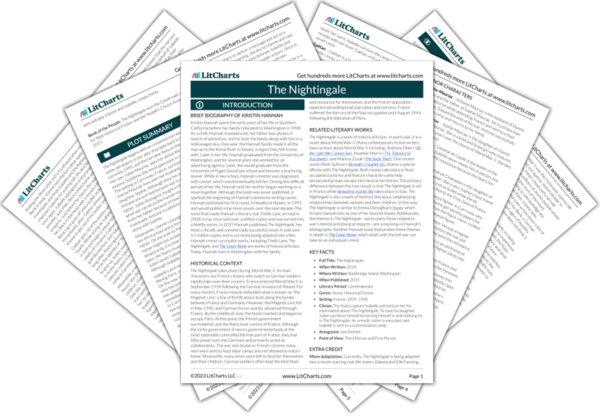Kristin Hannah spent the early years of her life in Southern California before her family relocated to Washington in 1968. As a child, Hannah traveled a lot; her father was always in search of adventure, and he took the family along with him in a Volkswagen bus. One year, the Hannah family made it all the way up to the Kenai River in Alaska, a region they fell in love with. Later in her life, Hannah graduated from the University of Washington, and for several years she worked for an advertising agency. Later, she would graduate from the University of Puget Sound law school and become a practicing lawyer. While in law school, Hannah’s mother was diagnosed with cancer, which would eventually kill her. During this difficult period of her life, Hannah and her mother began working on a novel together. Although the book was never published, it sparked the beginning of Hannah’s extensive writing career. Hannah published her first novel,
A Handful of Heaven, in 1991 and would publish nine more novels over the next decade. The novel that made Hannah a literary star,
Firefly Lane, arrived in 2008; it has since sold over a million copies and was turned into a Netflix series. In 2015 Hannah published
The Nightingale, her most critically and commercially successful novel. It sold over 4.5 million copies and is currently being adapted into a film. Hannah’s most successful works, including
Firefly Lane,
The Nightingale, and
The Great Alone are works of historical fiction. Today, Hannah lives in Washington with her family.
